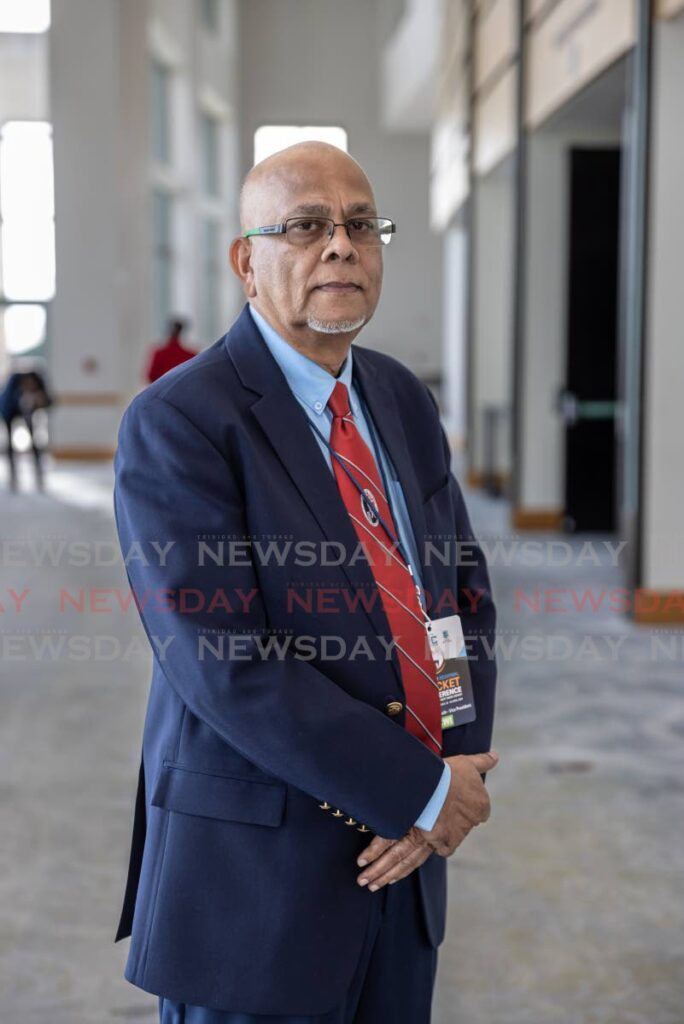TTCB defends committee’s ruling against whistle-blowing treasurer

The Trinidad and Tobago Cricket Board (TTCB) has responded to statements by attorney Dinesh Rambally that the Supreme Appellate Committee’s (SAC) decision to dismiss Kiswah Chaitoo’s appeal against his removal as TTCB treasurer in February was flawed.
A TTCB statement on December 23 defended the SAC’s ruling, saying, “Its decisions are based on evidence and legal principles” and the board felt it necessary to respond to Rambally’s claims “to clarify certain points for the benefit of transparency and to preserve the integrity of our organisation.”
Primarily, the SAC, on December 9, found Chaitoo in “flagrant breach” of Article 27 of TTCB’s constitution, which says: “The proceedings of all documents and all meetings of the executive and of the board shall be confidential and not be disclosed to unauthorised persons.” The ruling said Chaitoo breached his “duty of confidentiality” and the SAC deemed its findings sufficient for a vote of no confidence against him.
Rambally, one of Chaitoo’s attorneys, on December 13 highlighted several reasons he thought the SAC was wrong to dismiss his client’s appeal.
The TTCB, in response to Rambally’s claims, explained the role of the SAC, highlighting once more Chaitoo’s constitutional breaches and revealing intended solutions recently implemented to prevent financial missteps.
“Suggestions that the SAC failed in its duty or misinterpreted or misapplied the law on bias are regrettable and undermine the integrity of an independent judicial process. It must be noted the decisions of the SAC shall be final and binding and shall not be subject to challenge in any court of law,” the TTCB’s statement read.
The SAC comprised Justice Prakash Moosai (chairman), Samuel Saunders (deputy chairman) and members Rennie Gosine, Kent Ghisawan, Norris Ferguson, Patsy Joseph and Ammar Samaroo.
The claim that Chaitoo had breached the rule on confidentiality arose from his sharing internal TTCB information (allegations of missing money from TTCB’s accounts) with the police before the TTCB completed its internal investigations, as well as sharing information from executive meetings with the media.
Chaitoo also raised concerns of negligence by three executive members who signed blank cheques, but were still allowed to vote at the special general meeting which led to his removal as treasurer.
The TTCB responded that it took allegations of financial impropriety extremely seriously.
It said, “The claims concerning negligence by executive members in signing blank cheques have been addressed through enhanced internal controls and an independent audit process.
“While lapses were identified, the SAC rightly noted that these lapses did not amount to complicity or active participation in fraud. The TTCB has implemented several measures to ensure such issues are not repeated.”
The statement added that the motion of no confidence against Chaitoo arose from a breakdown in trust and communication between him and other members of the executive. It said the decision was made in accordance with TTCB’s constitution and by a democratic vote of its members.
“Any insinuation that the motion was driven by ulterior motives disregards the procedural safeguards in place and the collective judgment of the TTCB membership.”
It added that while the TTCB acknowledges the importance of transparency and accountability, Chaitoo’s dissemination of sensitive information to the press, as noted in the SAC’s findings, was inappropriate and contrary to article 27 of the organisation’s constitution.
“Transparency must be balanced with adherence to protocols that safeguard the organisation’s reputation and operational integrity.”
In light of the concerns raised by this chain of events, the board said it has already begun a comprehensive review of its governance framework, with recommendations being implemented to strengthen accountability and oversight.
This process includes mandatory ethics training for executive members and a renewed focus on financial due diligence, the statement read.

Comments
"TTCB defends committee’s ruling against whistle-blowing treasurer"